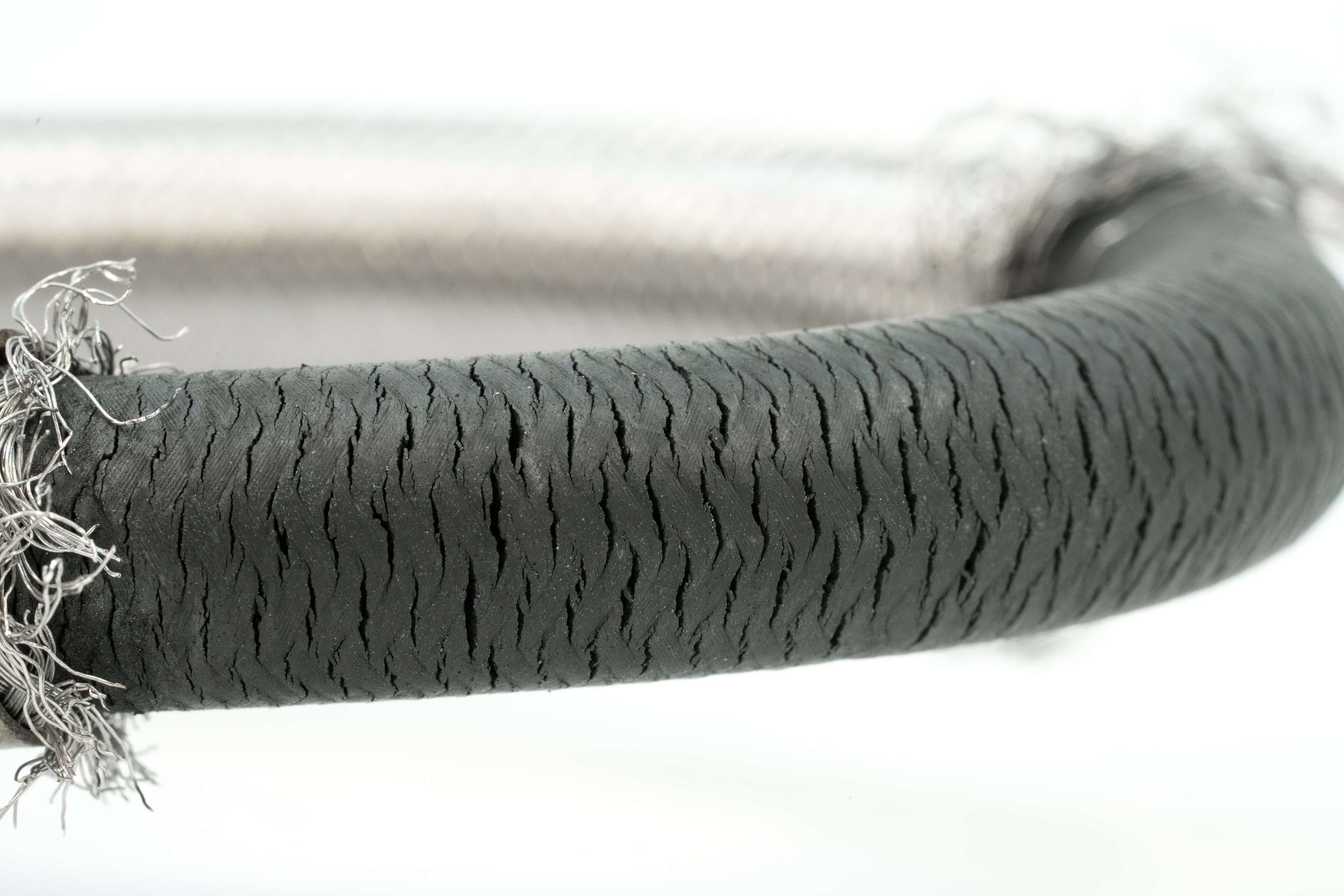
Ethanol is corrosive. The higher the ethanol content in fuel such as E10 the greater the risk of corrosion on metal and the degradation of rubber and plastic components in the car fuel system. This can lead to many issues for your beloved car.
Ethanol Compliant Hoses
The first and foremost thing to do is check your fuel hoses. Older hoses were made from more permeable materials, allowing more vapour to escape the hose than modern materials do.
E10 fuel contains ethanol, the ethanol in the fuel vapour will dry out the hose, causing it to become brittle and prone to cracking. Your vehicle’s hoses should have a specification stamped on them – R6 was widely original fitment on pre-1999 built Rolls Royce & Bentley motor cars, but the generally accepted standard nowadays for use with ethanol blend is R9 hose.
Using fuel treatments will not prevent vapour loss and subsequent leaks in hoses that are not compatible with ethanol, so it is crucial to be aware of this issue and make the necessary checks.
Fuel Treatments & Stabilisers
Apart from similar damage to other older rubber components, you are most likely to see corrosion issues. This can often be the cause of fuel injectors failing, or carburettor floats sticking. Of course, there are other areas where corrosion may occur that will not necessarily give a visual indication, such as the base of the fuel tank. Acidity in E10 can also cause fuel pumps to fail. E10 Fuel treatments have been developed to counteract and nullify the effects of ethanol.
One other thing to look out for is hot-running- Ethanol burns at a lower temperature than petrol. When the ethanol petrol blend is combusted in the engine, the oxygen supplied by ethanol that would not be there in pure petrol is now added, causing the fuel-air mixture to become leaner. This can result in hot running, which can be resolved by setting your fuel mixture slightly richer.








19 Mar 2024
17 Nov 2022
17 Nov 2022